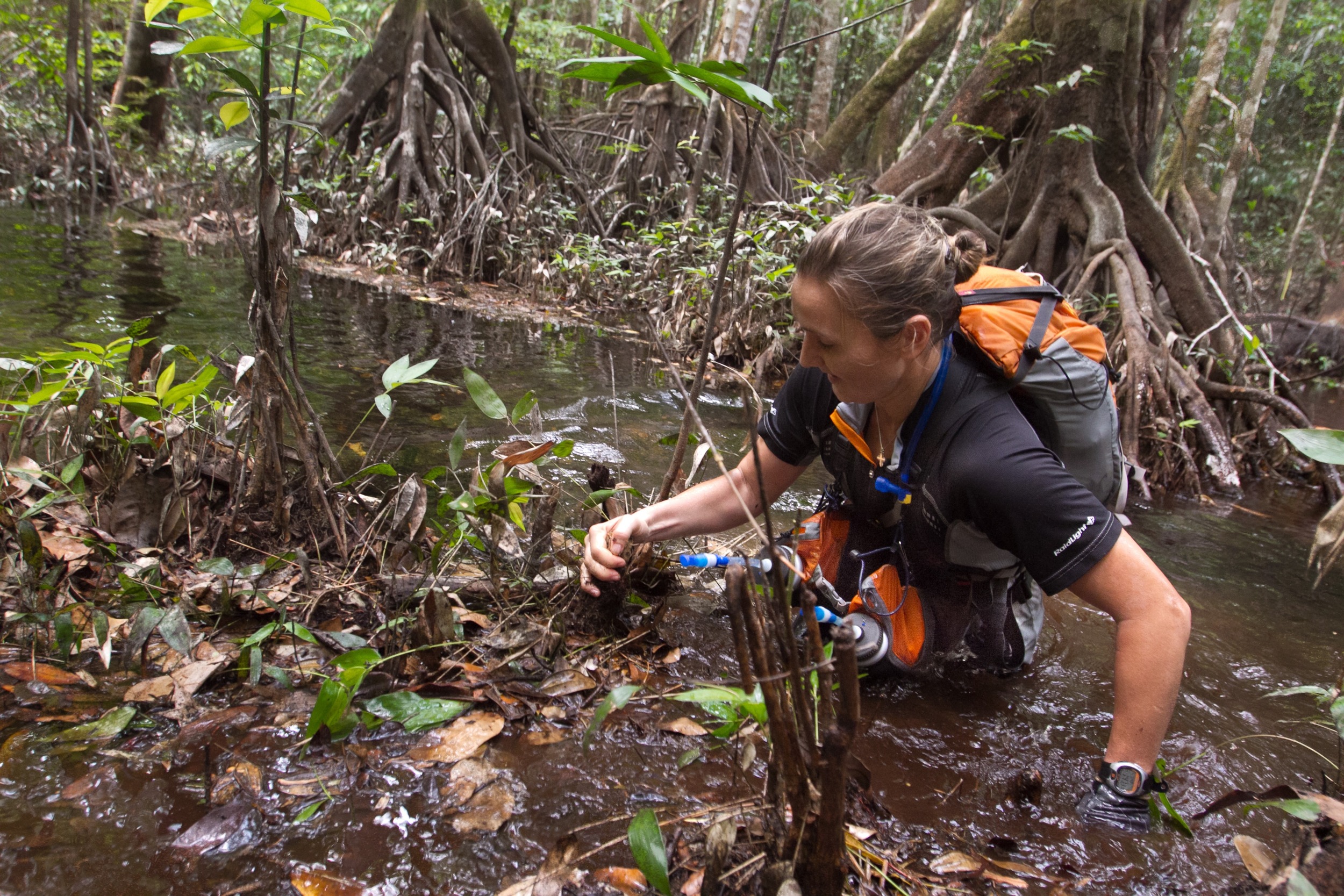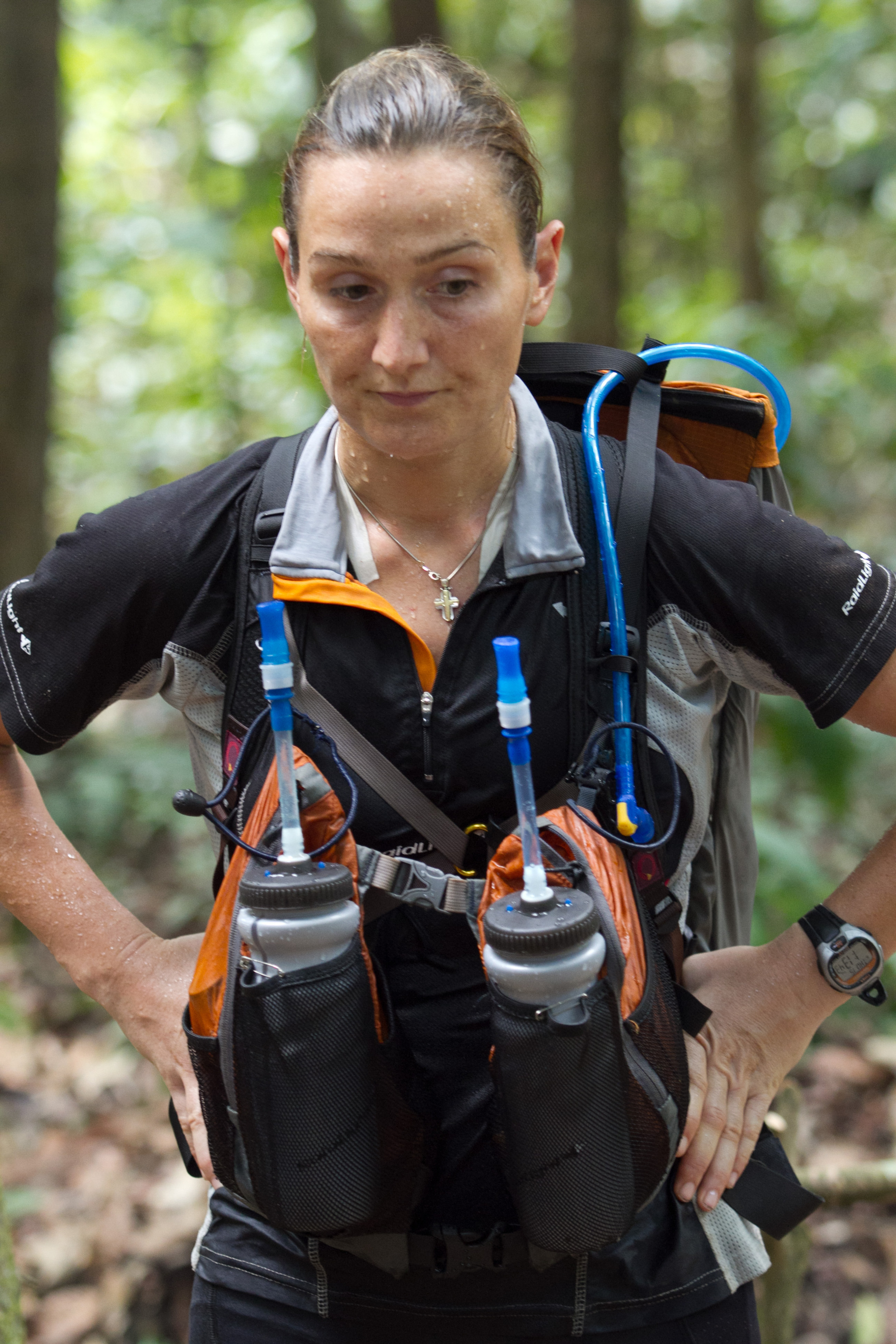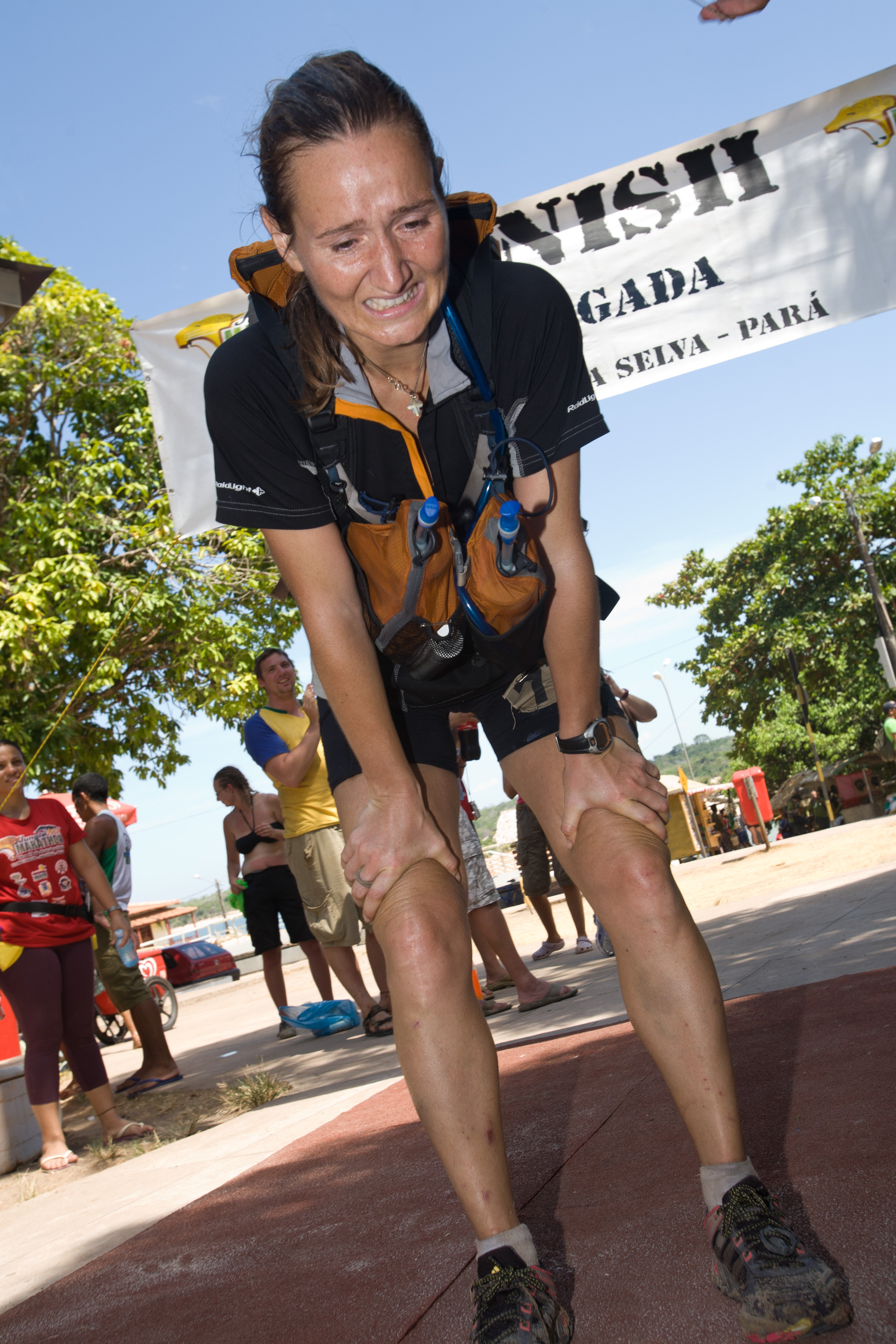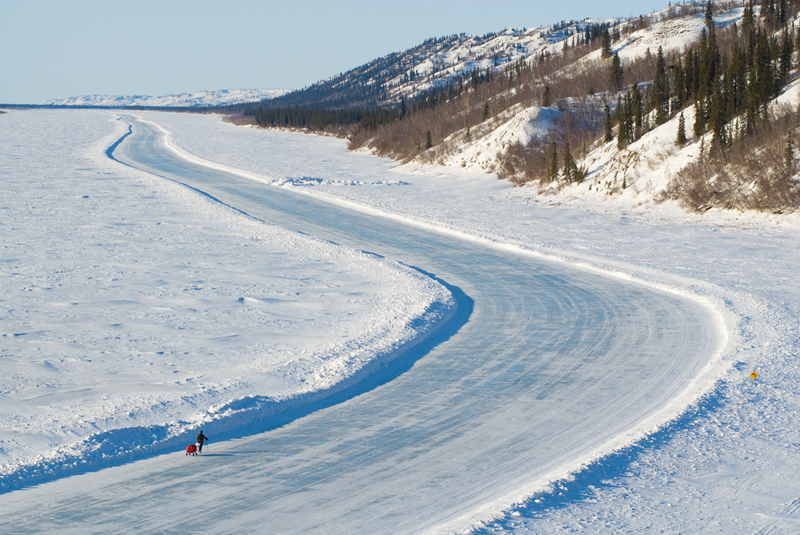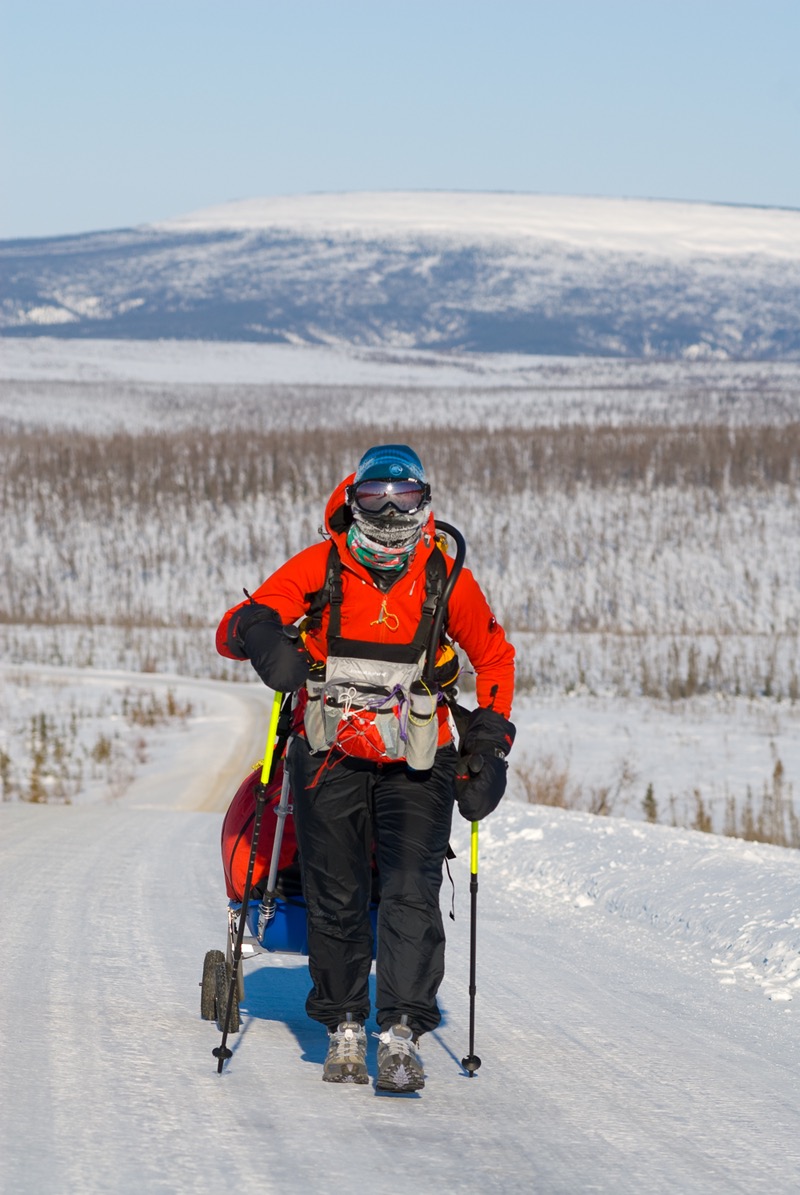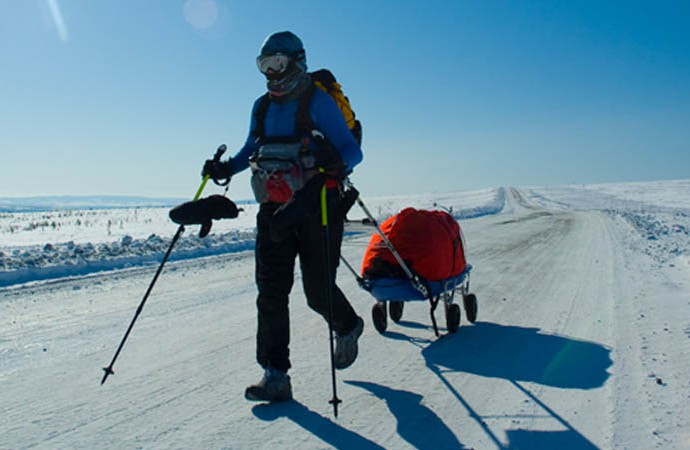We're delighted to welcome endurance athlete and adventurer, Lowri Morgan to our team of motivational speakers!
A self-confessed adrenaline junkie, Lowri has represented Wales on the rugby field, athletics, cross-country, and despite a serious knee operation, went on to become one of only eight people to successfully complete the notorious, 350-mile non-stop footrace – 6633 Artic Ultra - and the challenging Jungle Ultra Marathon in the Amazon Forest (as well as numerous other marathons worldwide).
As a television presenter, she has dived the depths of the ocean visiting the Titanic and lived amongst the local tribes in Namibia, China, Morocco, Mexico.
By way of an introduction, Lowri has kindly agreed to take part in a short Q&A to provide some insight into her adventures and achievements. So, without further ado...
Lowri, you have taken part in some of the most extreme races in the world, what was the most challenging race and why?
The most challenging race has to be my first ultra marathon and the training that came with it. In 2008 I was asked to produce a series following me racing in The Jungle Marathon - a 140 mile week long race - in Brazil. I trained so hard for it. I was so nervous for those 18 months. There were good days and bad of training – more bad days if I’m completely honest.
I remember phoning my boss, early on in the training, in tears as I explained to him that I was in too much pain to make it to work. I had run 40-miles that week. However, after 18-months of training, I had increased my weekly mileage to 100-miles a week and those miles included me carrying 15 kilograms of sugar bags in my rucksack. When I arrived at the jungle I was walking into the unknown. However, fear can be a strong motivator! This race was the first time I really had to drag myself physically and mentally to the end. Over half of the competitors pulled out. I was so relieved to cross that finish line and in tenth position.
Have you adopted any unusual training techniques into your regime when readying yourself for a race?
They say that nobody plans to fail, they just fail to plan. So I might not be the fastest nor strongest, but I always try to be the best prepared athlete on a start line. Depending on the race, I follow a schedule that involves 90-150 miles a week and back-to-back training. However, my preparations for the Arctic also included mental and systems training. I trained with the Special Forces (who taught me how to survive in a frozen world) in Sweden, ran up and down Snowdon non-stop three times (for mental toughness), I also trained in industrial sized freezers and ran around a city park (a three-mile loop) for 12-hours non-stop. I ran 4000-miles in one year.
As an adventurer, you've sky-dived, skied some of the toughest mountains and scuba-dived in dangerous waters, what inspires you to take on such extreme challenges?
There's a certain kind of happiness that comes with standing on top of a mountain, running along the coastline or skiing down a beautiful mountain - the view, the beauty, nature, the silence, and the knowledge that you have carried yourself there, with nothing but your own two feet.
Adventure is in my blood - it's also about embracing unique experiences; I love the beautiful countries I've had the privilege to visit and the inspirational people I've met along the way. I was always taught to take risks and opportunities to test my limits, to learn something new and to learn about the world.
What’s the worst thing you’ve encountered and/or experienced during one of your adventures?
Out in the Amazon, my feet were a mess – they were sceptic, had deep blisters, trench foot and I had lost all of my toenails. The pain was excruciating. I was about to give up. To make the situation worse, after about six-hours on the penultimate (6th) day, I stepped on a hornets' nest and there was a swarm following me. They were all stuck on my back behind my rucksack. I thought, I'll get to the checkpoint and give up. And I thought, it's not about how strong I am when I keep going, but when I pick myself up. That is when my body gave up and the mind took over.
You are one of 80 people to have dived to see the wreck of the Titantic – tell us more.
I was asked to present a documentary on the Titanic because of my background in shipwreck diving. I studied the ship for a year, I was so excited when the time came to spend 12-hours in a submersible on this unforgettable adventure! After two-hours of sinking two-and-a-half-miles to the bottom of the Atlantic Ocean, I eventually saw the resting site of Titanic - which looked almost like a lunar landscape - with the help of the external lights of our submersible,. Even in the darkness of the ocean floor, the front part of the mighty Titanic still looked magnificent. More astonishing were all the artefacts strewn on the ground - everywhere you looked there were bottles, crockery, cutlery, suitcases, shoes and even children's shoes. A sad reminder that you were actually looking at a graveyard for over 1500 people.
It’s been over two-decades since you suffered a debilitating injury that threatened your sporting career, what motivates you to keep going?
When they told me my running career had come to an end, I found that my passion for pushing personal boundaries and finding new ones, was an emotion too strong to ignore. I’m constantly amazed at the beautiful areas I find during my runs. The world is my big, natural, beautiful, adventure playground.
It's not about competing against others, it's actually all about the competition going on inside my own head and beating that tiny voice telling me to quit. Beating that little voice is a great motivator! Someone once told me that there are two rules in Ultra-running - to get to the start line and to get to the finish line. I've created a third rule - to put one-foot-in-front-of-the-other, and that attitude, has helped me through some of the toughest footraces in the World.
What challenge/activity has taken you the furthest outside your comfort zone both mentally and physically?
I pushed myself into an extremely uncomfortable zone in the 6633 Artic Ultra (a 350-mile week long self sufficient non stop footrace). It stripped my soul bare but it also rebuilt it. I learnt so much about myself physically and emotionally - about the importance of our surroundings, and how we can use its energy to lift us up when we are getting bogged down. I can now understand why this is considered to be one of the hardest races on the planet with the continuous walking and running, the lack of sleep and loneliness all playing mind games throughout. I'm especially proud of completing that 6633Ultra, especially as I had fractured both feet!
What has been your greatest achievement to date?
It was the first time I ran a 110-mile training run through Wales. I had already raced a 50-miles around the Brecon Beacons and was running home (on my own with a friend in a car behind me), which was 60-miles away. I was going to give up at the 65-mile point, but then I imagined myself on the sofa at home, telling people that I’d given up and I realised, at that moment, that the disappointment of not finishing my challenge would be far greater than the pain I was going through at the time. I carried on and finished in 22-hours. So, my greatest achievement has to be not giving up, having the guts to face my fear and going for my goal.
What projects do you have coming up that you’re able to speak about at this point?
I had my first child last year and I'm returning to the world of adventure racing this year. 2016 is going to be busy and I'm excited! In the Summer I'll be joining an all female crew to compete in the Three Peaks Yacht Race, I'll be running unsupported from North to South Wales via the Welsh Three Peaks in 3 days, I'm planning to break an ultra running record in the UK and then later this year completing a World First. I'm also working on a few Adventure series for TV and my challenges will also be filmed.
Stayed-tuned for further updates on Lowri's adventures!



